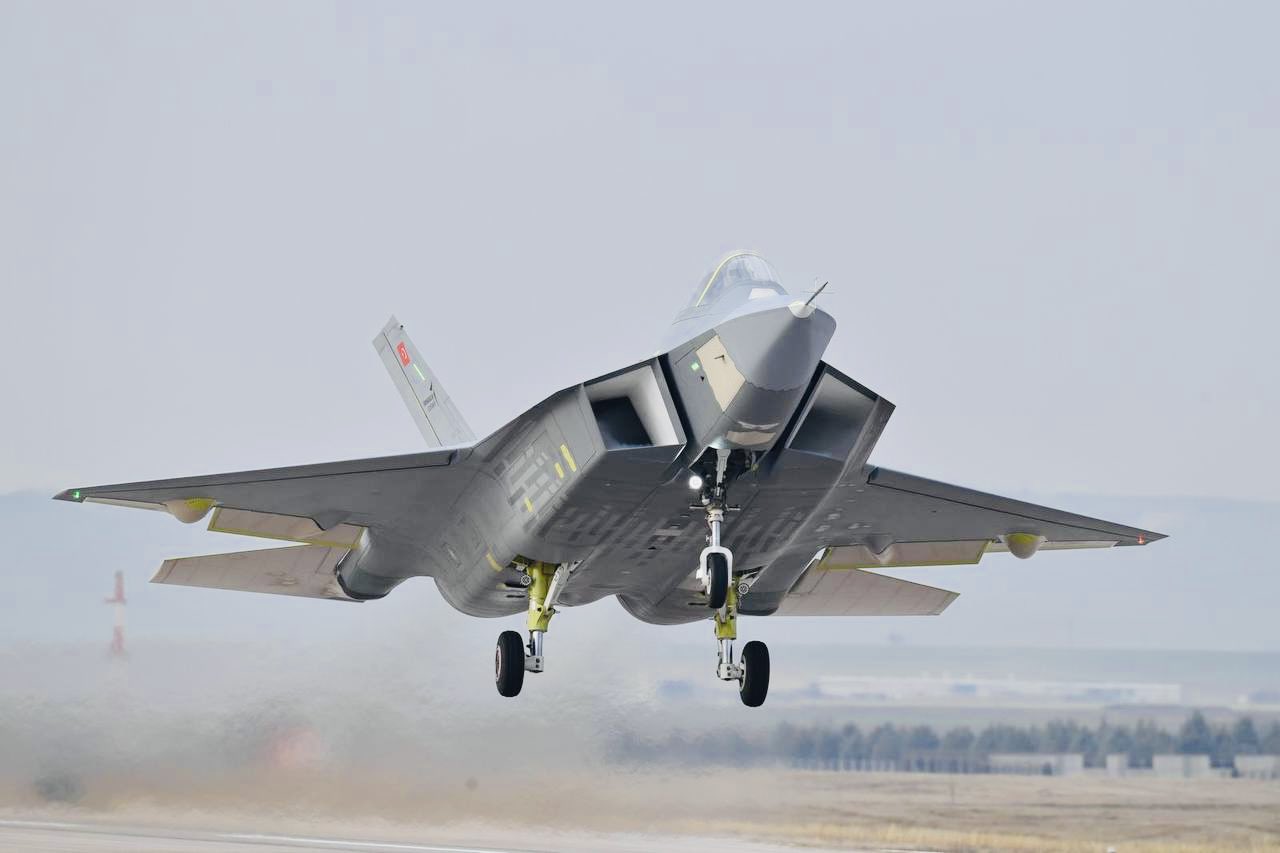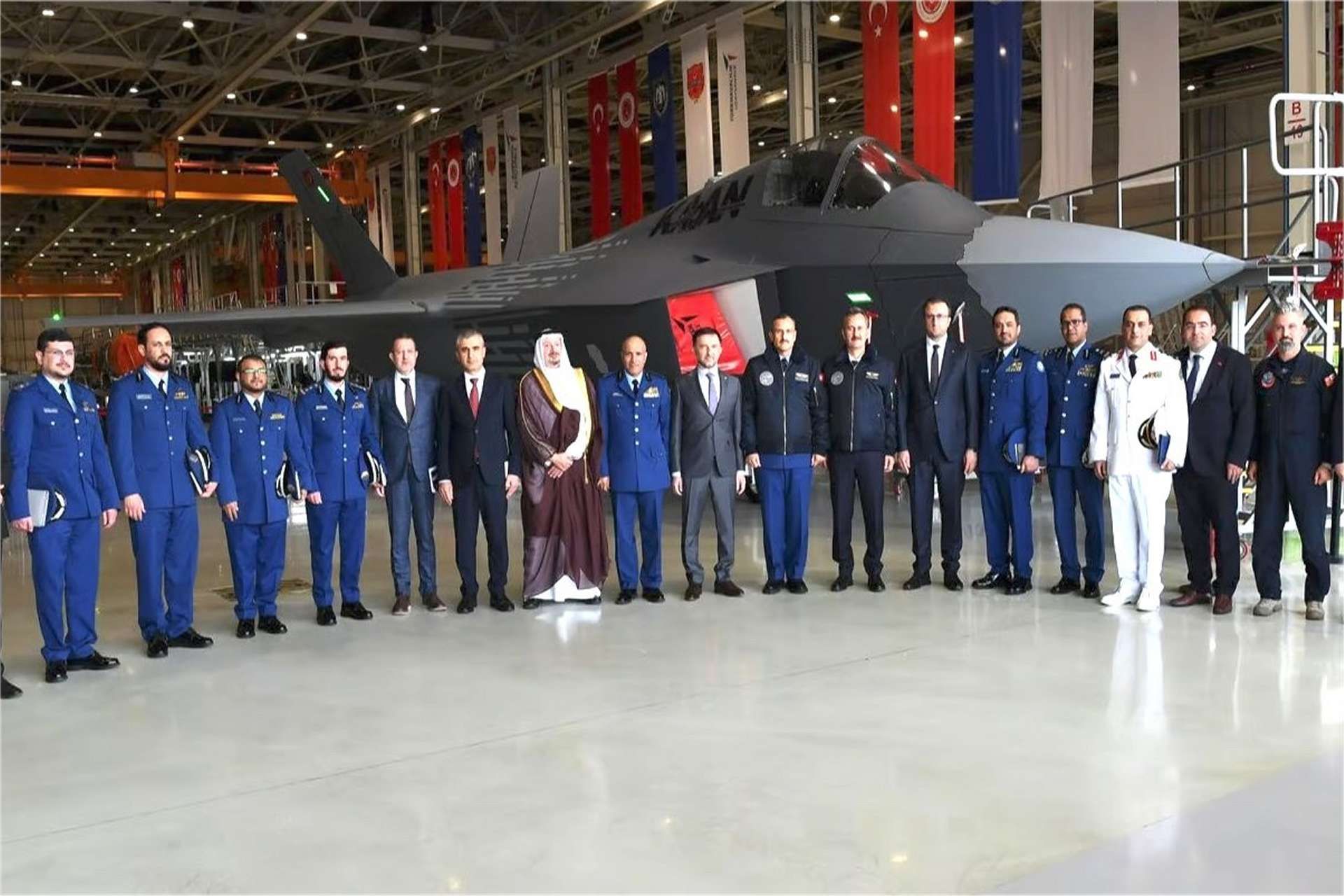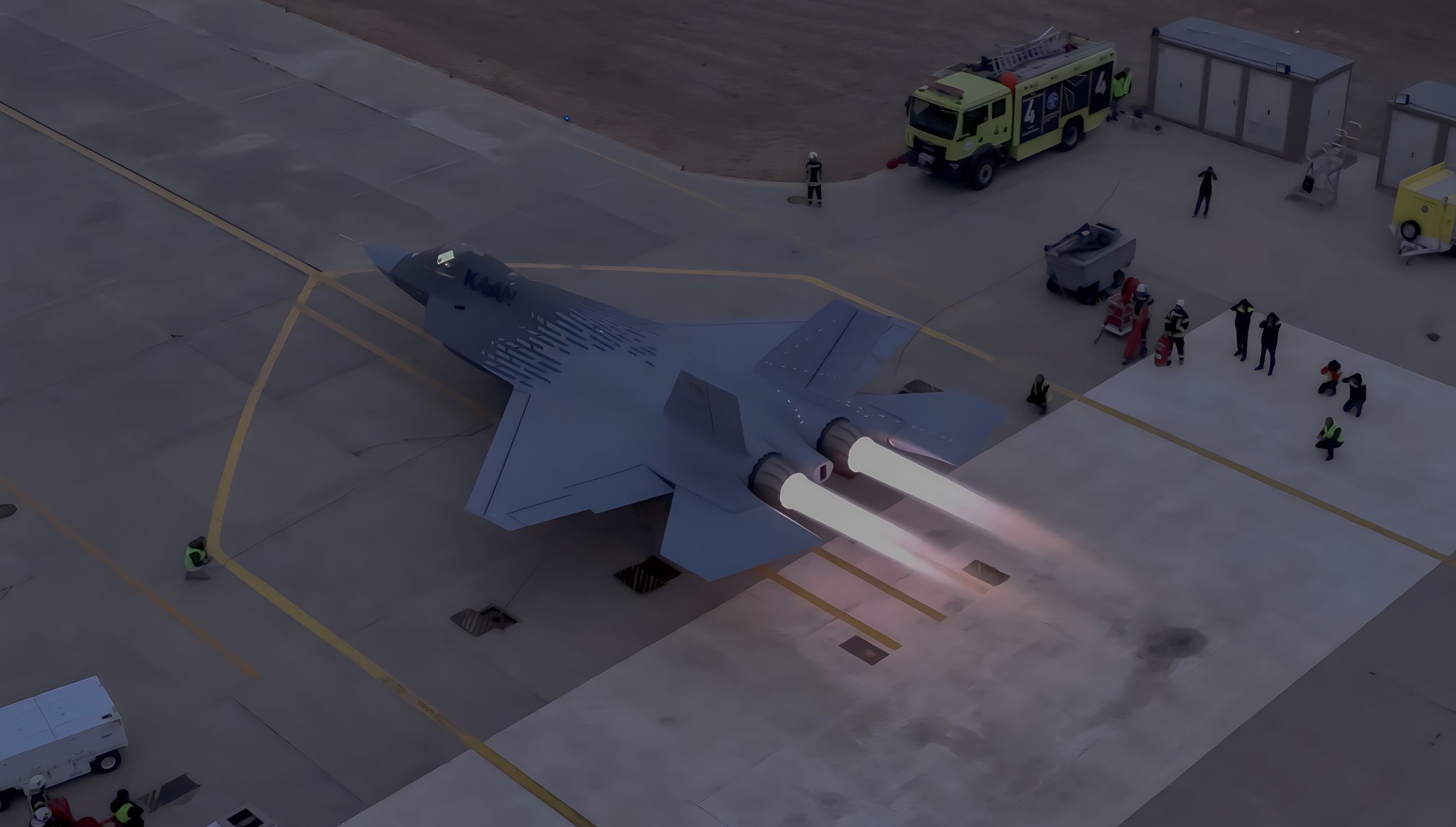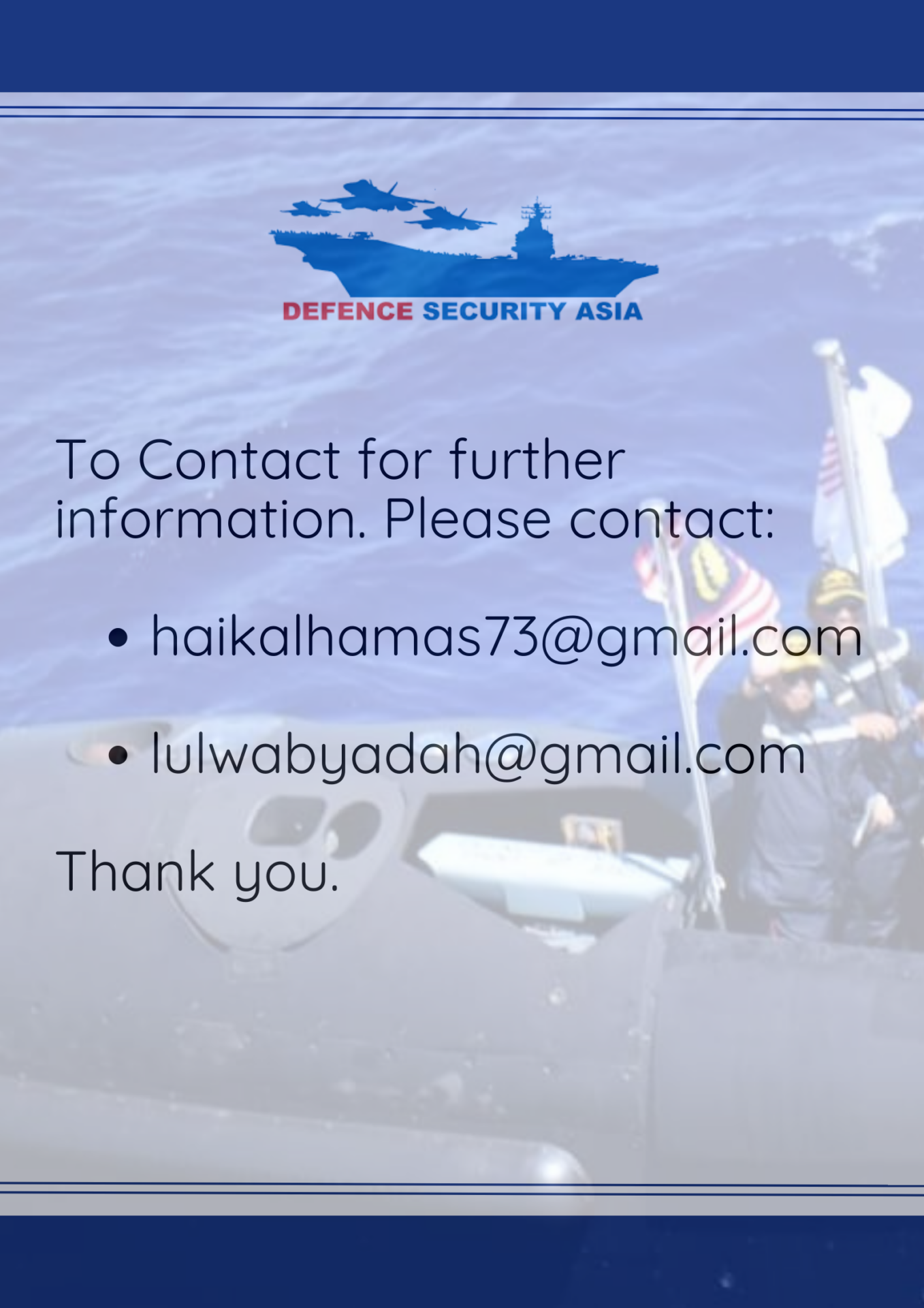Saudi Arabia’s Bold Gambit: The High-Stakes Pursuit of 100 KAAN 5th-Generation Fighter Jets to Reshape Air Dominance!
Since 2017, Saudi Arabia has been attempting to secure the F-35 fighter jets manufactured by the U.S. firm Lockheed Martin but has faced numerous obstacles, ultimately hindering its aspirations to obtain the crown jewel of Washington's fifth-generation fighter aircraft.
(DEFENCE SECURITY ASIA) – Saudi Arabia’s bold pursuit of up to 100 units of Türkiye’s cutting-edge KAAN fighter jet signals a seismic shift in its defense strategy.
The kingdom’s failure to secure the coveted U.S.-made F-35, coupled with an urgent push to break free from Washington’s grip and diversify its military imports, has set the stage for this game-changing move—one that could redefine the balance of power in the region.
Since 2017, Saudi Arabia has relentlessly pursued the highly coveted F-35 fighter jets from U.S. defense giant Lockheed Martin, yet a relentless series of roadblocks has thwarted its ambitions, leaving Riyadh locked out of Washington’s exclusive fifth-generation fighter program.
At the heart of this deadlock lies fierce opposition from Israel and its powerful lobbyists in Washington, who have moved decisively to block Saudi access to the game-changing aircraft.
Their overriding fear? That Tel Aviv’s ironclad Qualitative Military Edge (QME) over its Arab neighbors—especially Saudi Arabia—could be shattered if Riyadh were to join the elite club of F-35 operators.
Israel’s resistance has been neither subtle nor selective. In 2020, it fiercely protested the proposed sale of 50 F-35s to the United Arab Emirates (UAE), even after then-President Donald Trump greenlit the deal.

The very notion of an Arab nation narrowing the technological gap was enough to send shockwaves through Tel Aviv, igniting a frenzy of opposition.
Israel’s relentless grip on military supremacy extends far beyond blocking the F-35. It has waged an aggressive campaign to prevent the sale of devastating long-range air-to-air missiles—such as the lethal AIM-120 AMRAAM and the formidable METEOR—to Egypt and other regional powers wielding advanced fighter jets like the F-16 and Rafale.
For Israel, absolute dominance over the skies is not just a strategy—it is an unshakable doctrine, enforced at any cost.
But Saudi Arabia’s pursuit of the F-35 has not just been obstructed—it has been held hostage to conditions that reek of geopolitical coercion.
Riyadh has reportedly been told that approval hinges on its willingness to recognize the very existence of what it views as an “illegal state”—Israel—and to establish formal diplomatic ties with Tel Aviv.
This, even as the Jewish state continues its occupation of Palestine and its unrelenting violence against the Palestinian people.

Saudi Arabia’s relentless drive to break free from U.S. dependency in defense procurement has emerged as a defining force behind its growing interest in Türkiye’s cutting-edge KAAN fighter jets.
Determined to chart its own path, Riyadh is reshaping its air power strategy, seeking to build a more diverse and independent arsenal.
Currently, the Royal Saudi Air Force operates a formidable fleet of F-15s and Eurofighter Typhoons, but the addition of the KAAN would mark a bold new chapter—one that cements its commitment to breaking the traditional chains of Western reliance.
This aggressive push for diversification is no mere policy shift—it is a strategic necessity. Relations between Riyadh and Washington soured under former U.S. President Joe Biden, propelling Saudi Arabia to seek alternative defense and diplomatic alliances.
During Biden’s tenure, the kingdom deepened its ties with China and Russia, securing advanced weapon systems from these global powerhouses.
In a move shrouded in secrecy, it was recently revealed that Saudi Arabia had quietly funneled a staggering $2.3 billion (RM10.1 billion) into acquiring 39 units of Russia’s formidable Pantsir-S1M air defense system.
According to a bombshell report by Defence Security Asia, citing documents from the Organized Crime and Corruption Reporting Project (OCCRP) and Russian defense giant Ruselectronics (a subsidiary of ROSTEC), the deal also included 10 mobile command posts, hundreds of precision-guided missiles, transport vehicles, and cutting-edge communication systems.

With each move, Saudi Arabia is sending a clear and unyielding message—it is no longer content to be a mere customer of U.S. arms but a sovereign power shaping its own military destiny.
In a bold and unprecedented move, Saudi Arabia is reportedly preparing to acquire a staggering 100 units of Türkiye’s revolutionary KAAN fifth-generation fighter jet, a deal that could redefine the balance of air power in the region.
High-level negotiations surrounding the acquisition took center stage during a crucial visit to Türkiye late last December by Prince Turki bin Bandar Al Saud, Commander of the Royal Saudi Air Force.
His visit was far more than a diplomatic formality—it was a strategic mission.
Prince Turki engaged in intensive discussions with Türkiye’s top defense giants, including Roketsan, Aselsan, and the jet’s manufacturer, Turkish Aerospace Industries (TAI)
These meetings delved deep into not just the capabilities of the KAAN, but also a potential game-changing strategic partnership between the two nations.
According to reports from international defense sources, the visit granted the Saudi delegation exclusive insights into the cutting-edge advancements of the KAAN, further strengthening the possibility of a historic collaboration in next-generation air combat technology.

But this deal is about more than just procurement—it could open the door to technology transfer and even local production of the KAAN within Saudi Arabia, a move that would elevate Riyadh’s defense industry to new heights.
At its core, this proposed acquisition is a powerful declaration of intent—a testament to the deepening defense ties between Saudi Arabia and Türkiye, two regional powerhouses poised to reshape the military landscape of the Middle East.
On July 18 last year, Saudi Arabia announced plans to spend $3 billion (RM13.5 billion) to procure Akinci MALE (Medium Altitude Long Endurance) drones from Türkiye’s Baykar Technology, marking the largest defense contract in Türkiye’s history.
The Turkish Air Force is expected to receive over 100 KAAN fifth-generation fighter jets once mass production by Turkish Aerospace Industries (TAI) commences.
TAI, the primary contractor for the KAAN program, began the project in 2016 and is expected to deliver 20 KAAN Block 10 fighters to the Turkish Air Force by 2028.
By 2029, TAI plans to produce two KAAN fighters per month, generating an annual revenue of approximately $2.4 billion (RM9.6 billion).
The KAAN jets will replace over 200 F-16 fighters currently in service with the Turkish Air Force.
— DEFENCE SECURITY ASIA


